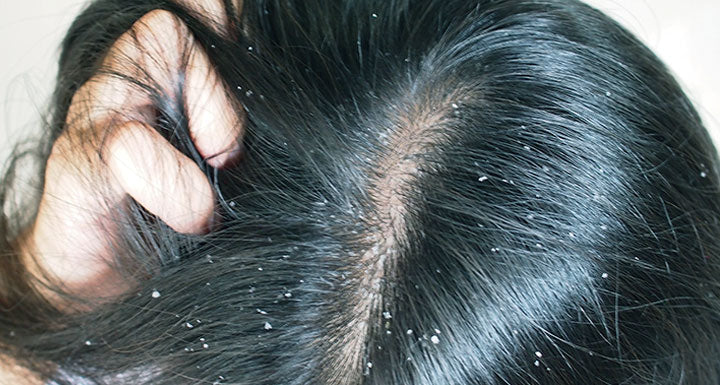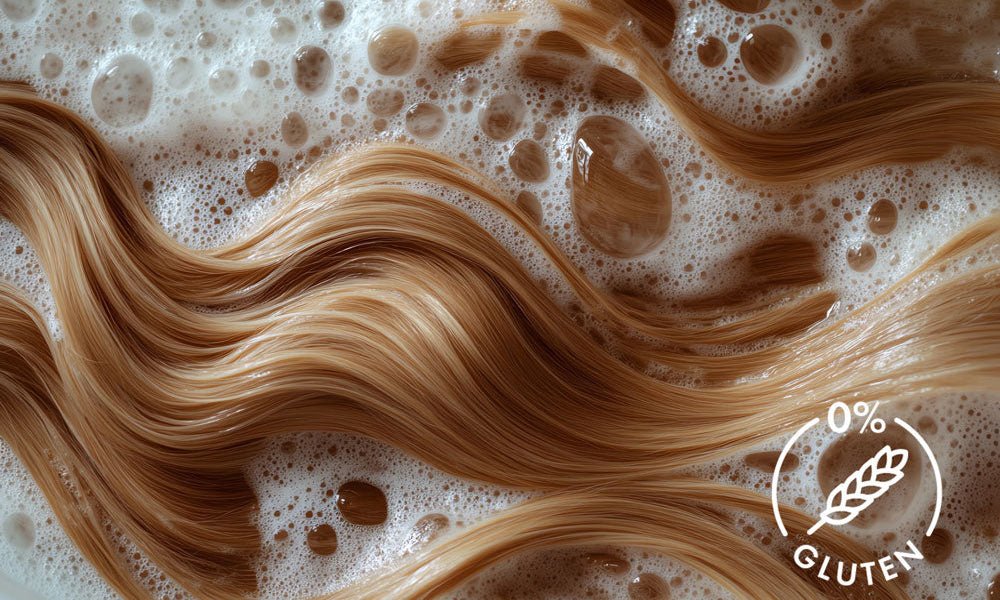If you’re living gluten-free, whether due to coeliac disease, wheat allergy, or non-coeliac gluten sensitivity, you already pay close attention to food labels. But have you ever checked the ingredients in your shampoo or conditioner?
Many people haven’t. And while gluten can’t be absorbed through the skin, there’s still a good reason to consider gluten-free haircare.
Can gluten in haircare cause reactions?
In short, it depends. While gluten itself isn’t absorbed transdermally (through intact skin), it can enter your system in other ways, especially when products like shampoo and conditioner run near your mouth, eyes, or hands.
Simple things like:
- Washing your hair in the shower
- Touching your face after styling
- Accidentally ingesting traces left on your hands or towels
...can all increase the risk of exposure, especially if you're highly sensitive.
Gluten intolerance and eczema (or Dermatitis Herpetiformis) are not uncommon.
What is Dermatitis Herpetiformis (DH)? DH affects 10-15% of people with celiac disease. DH patients frequently have no digestive symptoms. The vast majority of patients with DH also have an associated gluten-sensitive enteropathy (celiac disease). It's worth noting that it can resemble eczema.
It’s not uncommon for people with gluten intolerance or coeliac disease to also experience eczema or other inflammatory skin conditions like DH. While gluten may not directly cause eczema, some individuals find that exposure - whether through diet or topical products - can exacerbate flare-ups, especially when the skin barrier is already compromised.
Choosing gluten-free skincare and haircare can help reduce the overall load on sensitive skin, offering peace of mind to those managing multiple sensitivities.
Here's what you need to look out for on the INCI (ingredients) list:
- Triticum vulgare (wheat)
- Hordeum vulgare (barley)
- Secale cereale (rye)
- Avena sativa (oats)
- Wheat germ oil
- Hydrolyzed wheat protein
- Colloidal oatmeal
- Hydrolyzed vegetable protein
- Dextrin palmitate
- Vitamin E from wheat germ oil
- Malt extract
- Beta-glucan from wheat
- Vegetable Protein* (Any Variant).
Choosing gluten-free haircare may seem like a small detail, but for many coeliacs and sensitive skin sufferers, it’s part of a bigger picture: creating a safer, more confident routine from head to toe. Bear in mind that if you also have eczema, psoriasis, or dermatitis your skin barrier can become compromised much easier. That means even small irritants like gluten, fragrance, or colourants can trigger reactions, redness, or discomfort.
For those with both gluten intolerance and sensitive skin, removing gluten from topical products can help reduce flare-ups or uncertainty about what’s causing irritation.
At Olsson Scandinavia, we believe peace of mind should come as standard. Our haircare is gluten-free, recommended by both Allergy UK and Asthma Allergy Nordic - expert allergy certifications that cover 4 countries.
Useful links:
- Shop Olsson Shampoo DUO and Save 25%.
- View Olsson Scandinavia Allergy UK Listing.
- Related Gluten Free / Coeliac Articles.


